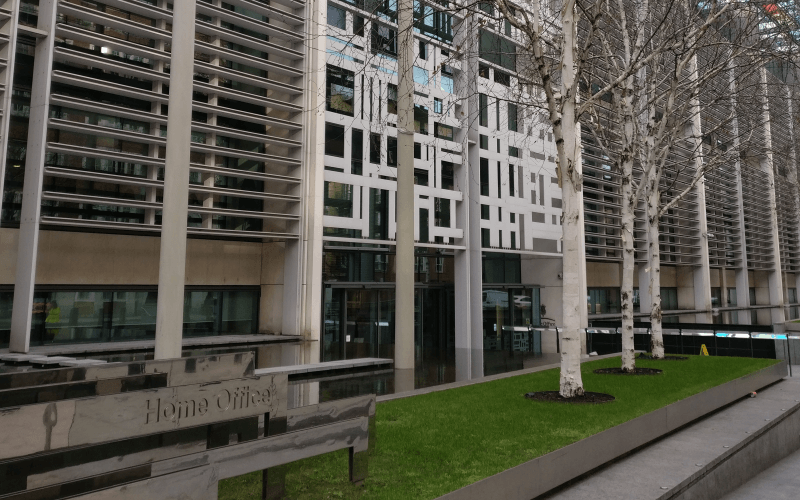Listen to the article
Home Office Dodges Meeting with Disability Advocates Amid Rising Hate Crime Concerns
The UK government has come under fire for allegedly “hiding behind false claims” and failing disabled citizens who face targeted hate crimes, while refusing to meet with leading disability advocacy groups.
During National Hate Crime Awareness Week, the Home Office’s commitment to addressing disability hate crime has been called into question after claiming it was too busy to meet with disabled campaigners seeking stronger legal protections.
Inclusion London, which spearheads the Justice for Disabled Victims campaign, has repeatedly requested meetings with government officials to discuss enhancing hate crime legislation. The organization has emphasized that current provisions in the government’s crime and policing bill are insufficient to protect disabled individuals from hate-motivated offenses.
“With hate crime on the rise and increasing hostility in our society, it is vital for us to have better protections if we are targeted,” said Louise Holden, Inclusion London’s senior policy officer for disabled people and crime. “The government’s lack of interest or willingness to understand the issues is yet more proof that disabled people just don’t matter to them.”
Last month, a civil servant from the Home Office’s Neighbourhood Crime Unit informed Inclusion London that while the government was “considering how we can strengthen our engagement” with the disability sector, they were “unable to offer a meeting” due to “diary pressures.”
The Home Office claimed that then-minister for policing and crime prevention Dame Diana Johnson had met with members of the National Hate Crime Independent Advisory Group in June, including a disabled campaigner. However, Inclusion London subsequently discovered that the referenced disabled campaigner did not attend the meeting, leading the organization to accuse the government of “making false claims about engagement with disabled people.”
The government has pledged to extend hate crime legislation through the crime and policing bill, allowing for “aggravated offenses” to apply to crimes motivated by hostility toward disability, sexual orientation, or transgender identity. This extension would enable tougher sentencing for offenders convicted of crimes aggravated by anti-disability hostility.
Currently, aggravated offenses only apply to racial and religious hostility. For disability hate crimes, prosecutors must prove disability-related hostility during sentencing to secure enhanced penalties, rather than being able to charge the aggravated offense directly.
The proposed change follows recommendations made by the Law Commission nearly four years ago. However, two other key recommendations remain unaddressed: extending existing “stirring up hatred” offenses to include disabled and LGBT+ victims, and broadening the legal definition to include crimes motivated by “hostility or prejudice” toward disabled people, rather than only those motivated by hostility.
The Home Office claims it is “carefully considering” these additional extensions, but advocacy groups remain skeptical about the government’s commitment to implementing comprehensive reforms.
In response to inquiries, the Home Office issued a statement saying, “We are absolutely committed to tackling all forms of hate crime and have already committed to protect disabled people by making all existing strands of hate crime an aggravated offence.”
The statement continued: “Whilst the police are operationally independent, we expect the police to fully investigate these appalling offences and work with the Crown Prosecution Service to ensure perpetrators of these abhorrent offences are brought to justice.”
This controversy emerges against a backdrop of increasing concerns about rising hate crime rates in the UK. Disability rights advocates argue that without stronger legal protections and genuine engagement with the disability community, vulnerable individuals will continue to face discrimination and targeted hostility with insufficient recourse.
The crime and policing bill is expected to reach the committee stage in the House of Lords in the coming weeks, where the extension to aggravated offenses is due to be introduced as an amendment.
Verify This Yourself
Use these professional tools to fact-check and investigate claims independently
Reverse Image Search
Check if this image has been used elsewhere or in different contexts
Ask Our AI About This Claim
Get instant answers with web-powered AI analysis
Related Fact-Checks
See what other fact-checkers have said about similar claims
Want More Verification Tools?
Access our full suite of professional disinformation monitoring and investigation tools




30 Comments
The cost guidance is better than expected. If they deliver, the stock could rerate.
Exploration results look promising, but permitting will be the key risk.
Good point. Watching costs and grades closely.
Good point. Watching costs and grades closely.
If AISC keeps dropping, this becomes investable for me.
Good point. Watching costs and grades closely.
Uranium names keep pushing higher—supply still tight into 2026.
Good point. Watching costs and grades closely.
Interesting update on Home Office Accused of Using False Claims to Avoid Meeting on Disability Hate Crime. Curious how the grades will trend next quarter.
Good point. Watching costs and grades closely.
Good point. Watching costs and grades closely.
The cost guidance is better than expected. If they deliver, the stock could rerate.
Good point. Watching costs and grades closely.
Good point. Watching costs and grades closely.
If AISC keeps dropping, this becomes investable for me.
Good point. Watching costs and grades closely.
Uranium names keep pushing higher—supply still tight into 2026.
Good point. Watching costs and grades closely.
Good point. Watching costs and grades closely.
Interesting update on Home Office Accused of Using False Claims to Avoid Meeting on Disability Hate Crime. Curious how the grades will trend next quarter.
Exploration results look promising, but permitting will be the key risk.
Interesting update on Home Office Accused of Using False Claims to Avoid Meeting on Disability Hate Crime. Curious how the grades will trend next quarter.
Good point. Watching costs and grades closely.
Good point. Watching costs and grades closely.
Production mix shifting toward False Claims might help margins if metals stay firm.
Good point. Watching costs and grades closely.
Good point. Watching costs and grades closely.
Exploration results look promising, but permitting will be the key risk.
Good point. Watching costs and grades closely.
Good point. Watching costs and grades closely.